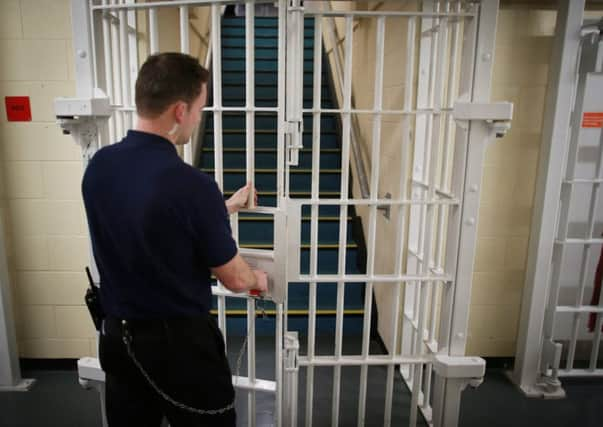Prison works and here is the evidence to prove Ministers are guilty of betraying law-abiding public – Bill Carmichael


Back in 1993 the then Home Secretary Michael Howard decided to tackle the relentless increase in crime rates since the 1950s with a tough new policy including longer prison sentences.
Advertisement
Hide AdAdvertisement
Hide Ad

What followed was nothing short of remarkable. As the prison population rose, eventually doubling, the crime rate tumbled by about 45 per cent. Howard’s response was the emphatic conclusion: “Prison works”.
This may seem common sense interpretation, but among our clever policy makers there was lots of head scratching. Could it really be that simple? You lock the bad guys up and crime goes down?


Advertisement
Hide AdAdvertisement
Hide AdThis straightforward deduction was eventually rejected and, instead, all kinds of other theories were presented to explain falling crime rates.
We were told, for example, that it was all to do with the economy. When times are hard crime increases, and when the economy improves crime goes down.
The big problem with this hypothesis is that it is not supported by the statistical evidence. For example crime rose relentlessly from the 1950s including during several periods of economic growth, yet crime fell between 2008 and 2010 when unemployment was rising.
Another theory was that crime was falling throughout Western democracies for some unspecified reason – but more recently this has proved to be false as well, not least in the UK.
Advertisement
Hide AdAdvertisement
Hide AdBut despite these obvious flaws the view that our criminal justice system is overly harsh and punitive has prevailed. So much so that the current Justice Secretary, David Gauke, has promoted the use of “community sentences” as an alternative to jail and wants to abolish prison sentences of less than six months altogether.
Presenting himself as the polar opposite of Michael Howard, Gauke has declared: “Prison simply isn’t working.” Now, coinciding with this softer approach to justice something else remarkable has happened – crime rates have rocketed, including murder, manslaughter, knife crime, sexual offences, robbery and theft.
So here’s another head scratcher for our policy boffins. When we lock up more criminals crime rates go down. But when we adopt a softer approach to sentencing, locking up fewer criminals and releasing those who are imprisoned early, crime rates go up. Could there possibly be any connection? Utterly baffling, isn’t it?
Now, thanks to work carried out by the Huddersfield-born Conservative MP Neil O’Brien, we have a better understanding of the workings of our criminal justice system, and it is far from the harsh and punitive regime as is often portrayed.
Advertisement
Hide AdAdvertisement
Hide AdThanks to a series of Parliamentary questions, Mr O’Brien discovered that almost 4,000 criminals with more than 50 previous convictions were spared jail in the last year alone.
Incredibly, nearly a third of criminals convicted of violence against the person and who had at least 25 previous convictions were spared jail.
According to Ministry of Justice figures, around half of all crimes are committed by just 10 per cent of “super prolific offenders”.
The conclusion is clear. It is in fact very difficult to be sent to jail in the UK, and only the most serious and persistent offenders – and not all of those – ever see the inside of a prison cell.
Advertisement
Hide AdAdvertisement
Hide AdThe current system is far from perfect. For example reoffending rates on release from prison are way too high. Any decent prison system should also include opportunities for the re-education of offenders, and counselling for mental health problems and drug and alcohol addiction.
As for community sentences promoted by Mr Gauke, no less a figure that Lord Burnett, Lord Chief Justice of England and Wales, commented recently that many judges have lost faith in non-custodial sentences because they are not monitored properly.
But if they are truly tough and rigorously overseen, community sentences should be an option for less serious offences. However the evidence is clear – incarceration is a vital tool in the fight against crime. To deny the invaluable role of prison in taking bad people off the street, especially at a time of rapidly rising crime, would be incredibly foolish.